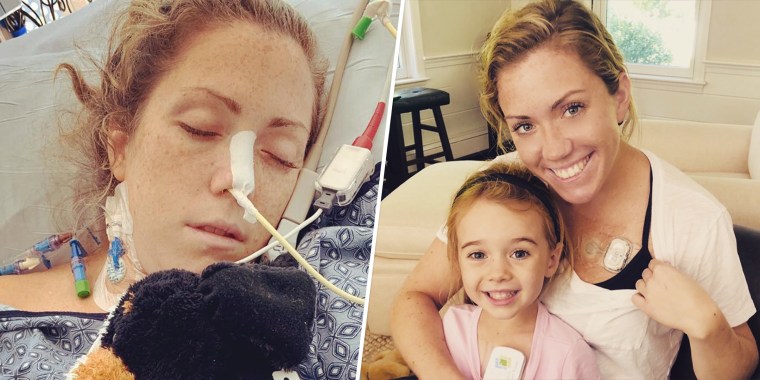When Jayme Kelly woke two years ago, she couldn’t feel her right side. The then 29-year-old suspected she slept “weird” and her right arm and leg were still asleep. When she tried to go to the bathroom, she struggled and fell a few times. She tried calling in sick to work as a pediatric nurse but couldn’t enter her phone password and then realized she couldn’t talk either.
“I’m freaking out. What’s wrong with me?” Kelly, 31 of Boston, told TODAY. “I didn’t know I was having a stroke because I didn’t fit into any risk factors.”
Her worried roommate rushed Kelly to the emergency department for treatment and she later learned she was having a stroke. For the past two years, she’s been recovering from it and is one of the American Heart Association’s Go Red for Women Real Women. She’s sharing her story to help others stroke.
“If I can have a stroke so can you,” Kelly said. “If you see someone exhibiting signs of stroke, facial drooping, arm weakness, speech difficulties — it’s time to call 911 because time lost is brain lost.”
A ‘bad morning’
At first, Kelly suspected that a terrible night of sleep caused her body to feel dull and heavy, like her right side was still asleep. After she struggled to call work, she decided to grab some more zzz's.
“I just figured bad morning. I thought, ‘Let’s just go to sleep and when you wake up, you’ll be fine,’” she recalled. “My roommate found me and she’s like, ‘Are you OK?’ and I couldn’t even talk to her. I couldn’t even mumble.”
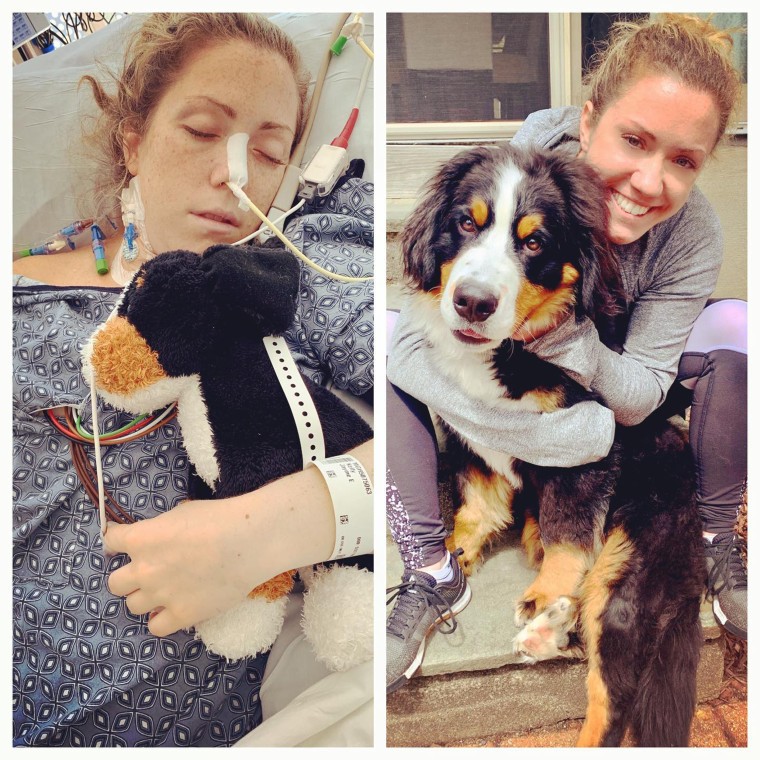
Her roommate called 911 and rushed Kelly to the emergency room. While doctors treated Kelly for stroke, it took Kelly a few days in the neurological intensive care unit before she knew what occurred.
“It took me two days to even realize I had a stroke. I was so shocked,” she said. “It changed my life forever.”
Learning that she had a stroke was overwhelming but dealing with the lingering problems felt even harder at times. She couldn’t move her arm, walk or speak.
“The entire time I was in the hospital I couldn’t say anything,” Kelly explained. “I can’t feel my hand at all.”
During her weeklong hospital stay, Kelly learned that she had Factor V Leiden, a genetic disorder that makes people more likely to form blood clots and deep venous thrombosis, according to the National Library of Medicine. Having that on top of taking birth control increased her risk of developing dangerous blood clots that can lead to stroke.
“They only tested me for Factor V because I had a stroke,” she said. “I was on birth control, which a lot of women are, and the hormones reacted to the Factor V Leiden.”
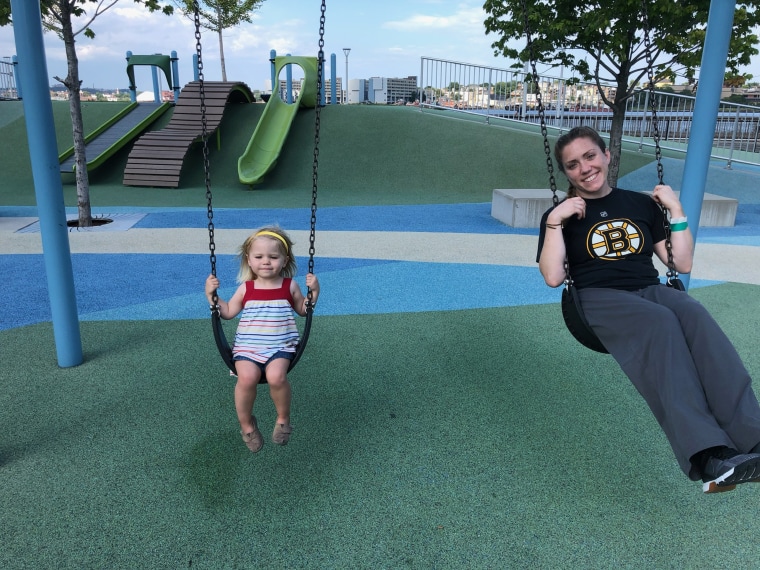
According to the American Heart Association, other stroke risk factors include:
- High blood pressure.
- Smoking.
- Diabetes.
- High cholesterol.
- Being sedentary.
- Obesity.
- Artery disease.
- Excessive drinking.
- Blood disorders.
- History or transient ischemic attacks (TIAs or mini strokes).
After a week in the hospital, Kelly transferred to in-patient rehabilitation where she started occupational, physical and speech therapy to recover for the next two weeks. She regained her ability to speak very slowly.
“The first thing I could say was, ‘Oh my God, I’m home,’ because my mom loves to tease me about that,” she said. “By the time I was out of rehab I could say, ‘My name is Jayme Kelly,’ ‘How are you?’ and ‘I love you.’”
She returned to live with her parents where she continued with outpatient therapy. Not being able to speak felt frustrating at times and Kelly often found herself chatting with her nieces and nephews who were learning to speak for the first time.
“My niece said I was like Ariel from ‘The Little Mermaid,’” she said. “I was learning how to talk. It was hard.”
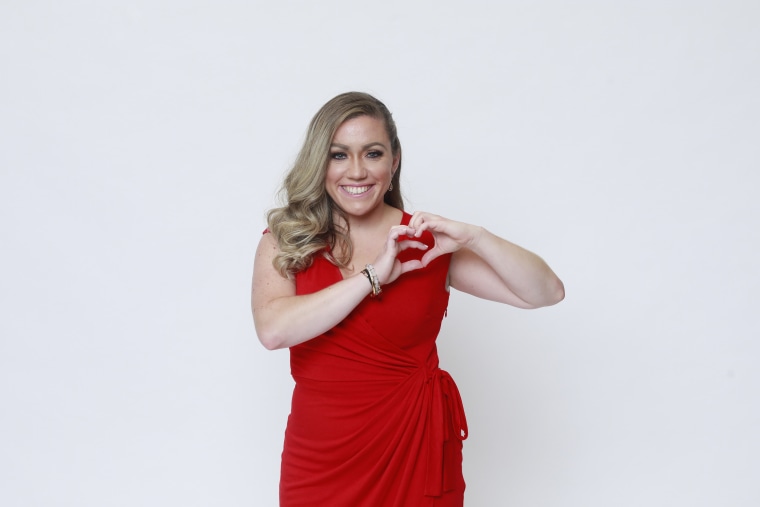
Kelly also struggled to read and she felt embarrassed and frustrated.
“I was like, “I can’t tell anyone I can’t read anymore. I can’t,’” she said. “If you would have seen me on the street no one really knew I am a stroke survivor but I am. And I didn’t want anyone to know that I was depressed … I didn’t want anyone to really understand how bad I was. How mad I was.”
She’d cry in the shower and during speech therapy. Soon she experienced nightmares every evening and started losing sleep. Finally, her speech therapist and sister urged her to speak to a therapist about her feelings.
“I was nervous about going to an emotional therapist because that day was the worst day of my life and I didn’t want to go back there. I didn’t want to relive it,” Kelly said. “But the more I talked about it, the better I felt.”
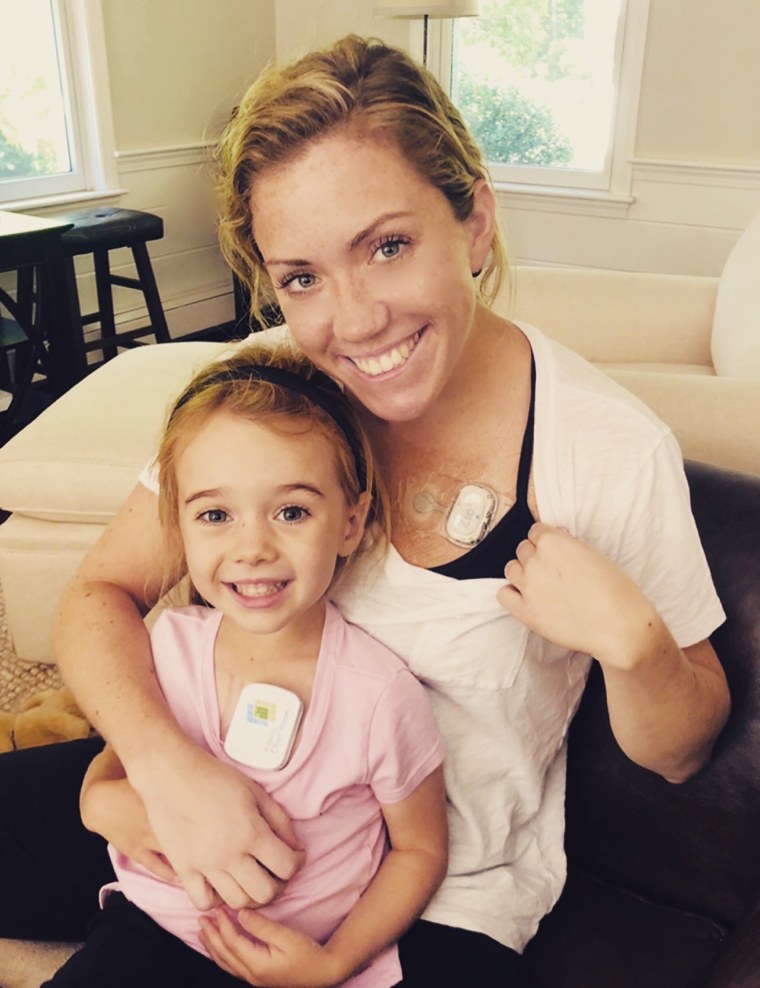
While learning to speak, read, walk and use her right hand again felt tough, grappling with the mental aspects from having such a serious stroke felt more difficult at times.
“Everyone who goes through a stroke or heart attack or something, they’re going to be depressed,” she said. “You need to speak out. It’s OK to cry. It’s OK to be scared and anxious. But you need to talk about it.”
Life after stroke
As Kelly’s strength improved, she returned to work first as a personal care assistant for a young girl with cerebral palsy. She recently became the girl’s personal nurse.
“I’m a nurse again, which is great,” she said. “I can walk the dogs, which I love. But it’s hard to really meet people who don’t know I had a stroke because I am disabled. I have speech difficulties so I get nervous. It’s hard to talk to someone I don’t know. But I’m getting better.”
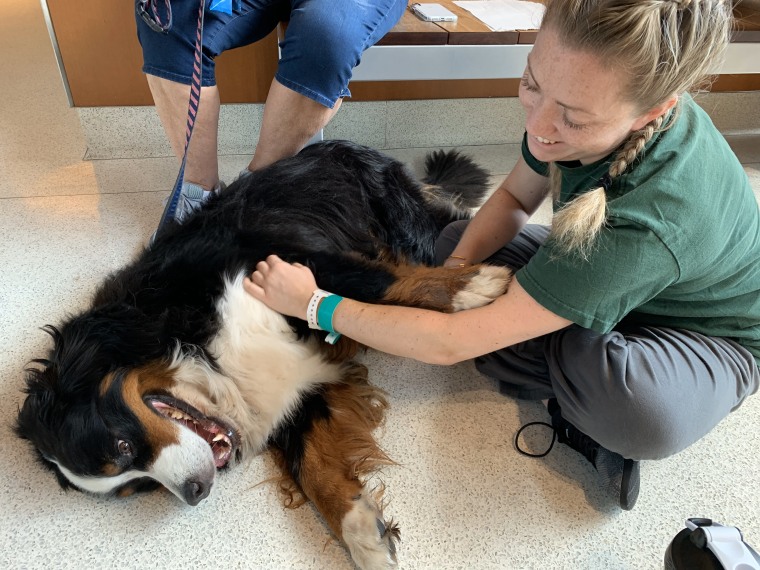
She’s also in music therapy and a book club to help her speech and reading.
“Music is controlled by the right side of your brain. Speech is controlled by the left side of the brain,” she said. “So I think music therapy helps me speak better.”
Still Kelly is trying to “living life to the fullest” and moved out on her own again recently. She’s encouraging others to understand their risk factors for stroke and the symptoms.
“Stroke doesn’t discriminate at all,” Kelly said. “No one really knows what goes into being a stroke survivor … It’s hard and I don’t want anyone else to go through what I went through.”
